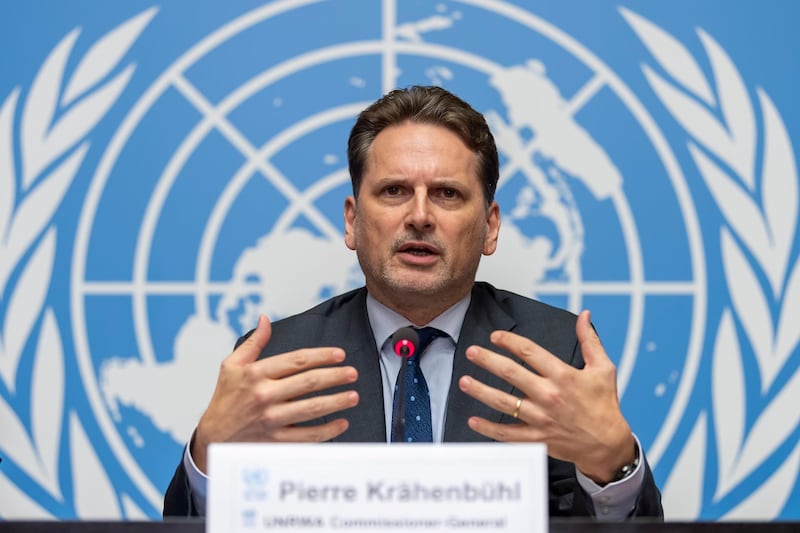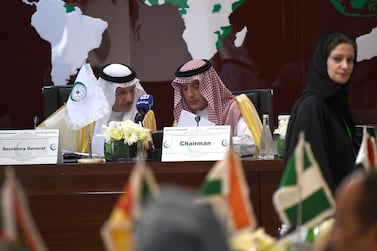The head of the UN Relief and Works Agency appealed to the international community to contribute as much as they did in 2018, when donor funding filled a huge gap left by the Trump administration's decision to cut US funds.
The US department in September last year announced an end to all funding for the UN agency, which helps 5.3 million Palestinian refugees. UNRWA, said the State Department, was "irredeemably flawed".
Pierre Krahenbuhl told the Associated Press agency he had been thanking donors for contributing the $1.2 billion (Dh4.4 billion) needed to fund UNRWA’s budget for 2018.
Four GCC countries – Saudi Arabia, Kuwait, the UAE and Qatar – each contribute $50 million to reduce the budget deficit late last year.
"Last year we had an extraordinary crisis and an out of the ordinary response," Mr Krahenbuhl told reporters on the side lines of a donors conference for Syria last week. "Our humble request to all the donors is: Please keep your funding levels at the same level as 2018".
The agency also adopted a $1.2 billion budget for 2019. This year it will receive nothing from what until now has been its biggest donor, the US. Last year, US President Donald Trump’s administration gave $60 million, a dramatic reduction from the $360 million it provided in 2017.
UNRWA is expected to look to the oil-rich Gulf states to contribute with the same generosity as last year. In the Organisation of Islamic Co-operation's annual meeting earlier this month in Abu Dhabi, Saudi Secretary General Yousef Al Othaimeen said his organisation would establish a Waqf endowment fund, in support of Palestine refugees.
"This represents a major milestone in the efforts to diversify funding sources in support of UNRWA," the agency said in a statement in response to the Saudi-based organisation’s support. However, no details or contributions have been announced yet.
The Waqf fund was first envisaged in a 2017 report by the Secretary-General of the UN and announced at the OIC’s 7th Extraordinary Islamic Summit Conference in Istanbul in May 2018. It aims to sustain and strengthen the life-saving services UNRWA provides to over 5 million Palestinian refugees in Gaza, West Bank (including East Jerusalem), Jordan, Lebanon and Syria.
Whether the funds come from the waqf or directly from the countries expected to contributed to the Islamic fund, UNRWA is looking for contributions as early as possible as the US has not shown willingness to contribute to the organisation. It is unlikely that Palestine will heed Trump’s demand that the Palestinians return to peace talks to receive US aid money — a comment that raised alarm from leaders of 21 international humanitarian groups, who protested that the administration's link between aid and political objectives was "dangerous."
Mr Trump at the time cited US and Israeli criticism of UNRWA's method of counting people as refugees — which they say has created a growing number of agency beneficiaries.
"Countries that supported us last year I would say were extremely proud to contribute to the solution," Mr Krahenbuhl said.
Last year, he said, the number of multiyear funding agreements with donors rose to 19.
UNRWA right now is in "a somewhat better position" than it was last year, with a shortfall of just over $200 million, Mr Krahenbuhl said.
So far this year, the agency has received $245 million and is expecting $100 million more, he said, which means it should be financially stable until about May.
"But from then on we'll start to…reach some crisis points," Mr Krahenbuhl said.
He said UNRWA is thinking about holding some events in the next two or three months "to collectively mobilise the donor community." In June, he said, there will be a pledging conference at which the UN and donors will take stock of the agency's financial situation.







